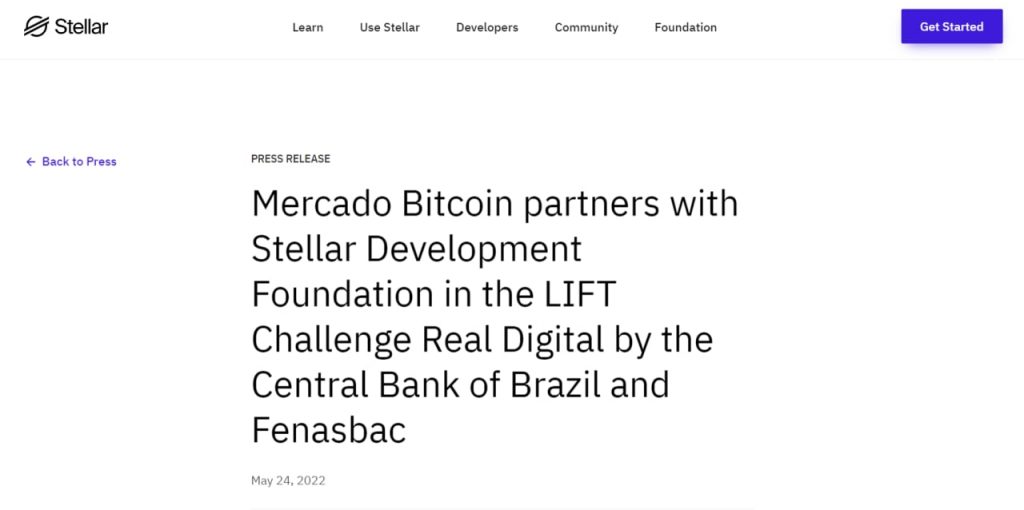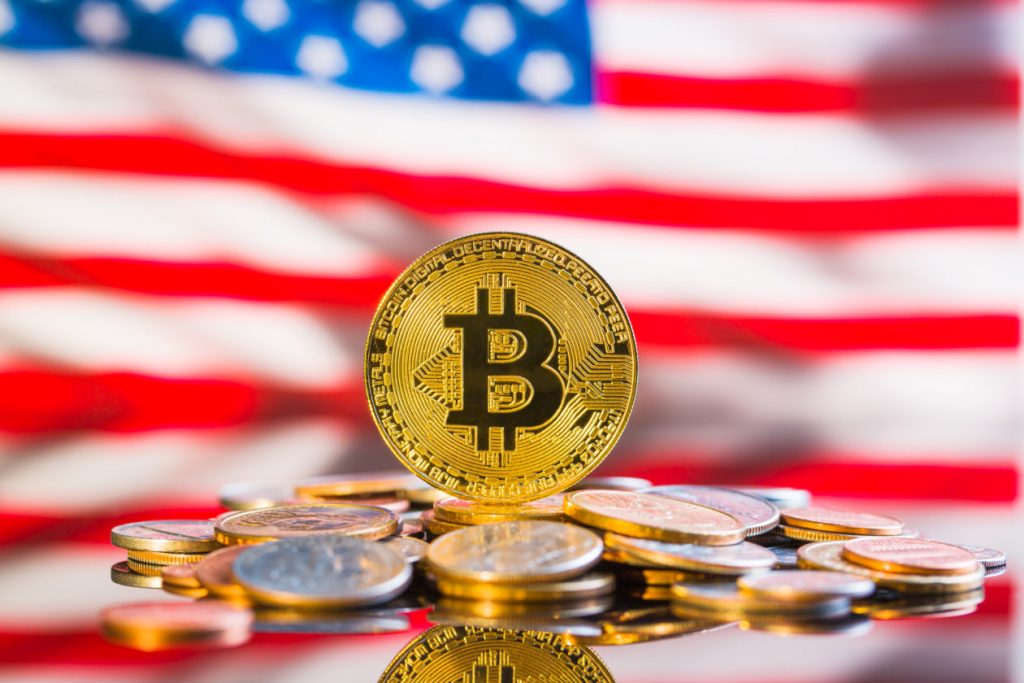
Brazil is moving towards creating its own token. It was announced this week that digital real could be deployed on the Stellar blockchain.
Will the Brazilian token be on the Stellar blockchain?

A statement from the Stellar Foundation team notes that the token is being created with the participation of the country’s largest crypto platform (Mercado Bitcoin) and Brazil’s Financial and Technology Innovation Laboratory (LIFT). The country’s central bank is spearheading the creation of a digital version of the real.
As early as last year, the moderator announced plans to create a CBDC and modernize the payment infrastructure based on the latest advances in blockchain technology.
Recently, Roberto Campos Neto, head of the Central Bank of Brazil, has said that a CBDC test version could appear as early as the second half of 2022. The central bank’s platform could be used both for digital real transactions and for launching stabelcoins with real collateral.
Stellar Foundation often invests in Latin American crypto projects. Last year, the Stellar Foundation invested $15 million in a Mexican cryptocurrency exchange.
Is the USA legalizing the crypto market?

US senators Cynthia Lummis and Kirsten Gillibrand plan to submit a bill to Congress in a month to regulate the cryptosphere. Both politicians advocate for sensible regulation of the industry so that it does not interfere with business development and promotes the attractiveness of the digital currency market.
Ripple cryptocurrency CEO Brad Garlinghouse also stands for transparency in cryptocurrency transactions and investor safety. In an interview with FOX Business, he said only regulation of the blockchain industry could protect investors.
A bill to regulate the digital currency market could be sent to the Senate as early as June. It was authored by Cynthia Lummis and Kirsten Gillibrand. They have been drafting the document for the past few months.
“We are really in favour of legislation that will allow us to regulate and grow the industry. It’s the best thing we can do for companies,” notes Gillibrand.
The Commodity Futures Trading Commission (CFTC) should be the key regulator for the industry. The Securities and Exchange Commission (SEC) would also get certain powers. However, the scope of its competence will only cover tokens, which can be classified as securities.
The bill also regulates mining and cryptocurrency brokers. According to the authors of the document, they plan to get the Senate’s approval no later than next year. In order for the upper house of Congress to support the bill, it must be approved by four Senate committees.
Ripple is also for crypto regulation
The crash of the UST Stablecoin in early May has severely shaken people’s confidence in digital currencies. Many have decided to get out of such instruments altogether. Therefore, the crypto market needs a regulator to control and prevent such situations
Ripple CEO Brad Garlinghouse is also in favour of sensible crypto regulation. In his opinion, it is necessary to protect investors and ensure transparency of token transactions – these are the first priorities for regulators.
Garlinghouse pointed to Ripple and the company’s XRP token as examples. These are transparent players that comply with legislation. He also touched on blockchain technology.
He said that decentralized technology reduces the cost of money transfers and speeds up cross-border payments. El Salvador did the right thing when it not only recognized bitcoin as a means of payment last year, but also used blockchain to modernize its financial infrastructure, Garlinghouse said.